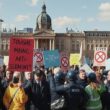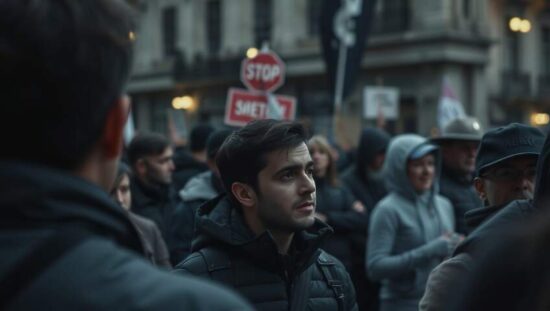The Federal Constitutional Court has rejected a constitutional complaint challenging a criminal conviction stemming from the Assembly Act, a decision that underscores ongoing tensions surrounding freedom of expression and the limits of protest in Germany. The complainant, involved in a counter-demonstration in Freiburg, had participated in a seated blockade, effectively obstructing a previously authorized assembly organized by a religious group. The resulting conviction and fine for “gross disruption” remain valid.
The court’s ruling hinges on the principle that the desire of a counter-protesting group to actively disrupt another’s permitted assembly cannot outweigh the fundamental right of that group to assemble. Judges argued that safeguarding the process of democratic discourse requires protecting the right to public expression, even if it means restricting the actions of those seeking to challenge the views of others. The court specifically emphasized that permitting disruptions of this nature would risk transforming the right to assembly into a tool of suppression against those holding different beliefs.
The decision has already sparked debate among legal experts and civil rights advocates. While the court affirms the importance of allowing peaceful assembly across the political spectrum, critics argue the ruling potentially silences dissenting voices and limits the capacity for impactful protest. Some raise concerns that the interpretation could be used to broadly curtail demonstrations perceived as disruptive, even if intended to highlight injustices or challenge prevailing viewpoints.
The case highlights a broader struggle within German society – the delicate balance between protecting the right to free assembly and preventing protests from unduly infringing on the rights and freedoms of others. Further legal challenges and increased scrutiny of protest regulations are anticipated in the wake of this decision, as the government grapples with defining acceptable boundaries for public demonstrations in a democratic context. The ruling serves as a clear signal that obstructing permitted assemblies, even with political motivations, risks invoking the full force of the law.





